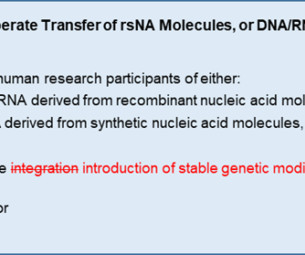The Importance of Hazard Communications in Clinical Trials Involving Genetic Engineering
Advarra
JUNE 13, 2024
Recombinant DNA technologies and genetically modified biological agents are being adapted for a wide scope of therapeutic applications, and their use is becoming increasingly common in clinical trials. Synthetic mRNA-based therapeutics used in clinical research today also fall into this self-limiting class of recombinant therapeutics.














Let's personalize your content